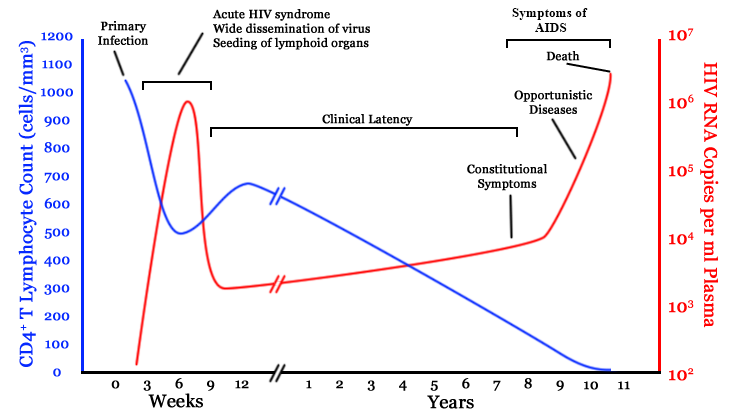
Rhesus macaque on which treatment testing was performed.
https://www.sciencedaily.com/releases/2016/10/161013141053.htm
An international research team based out of the German Primate Center has developed an effective treatment regime against the HIV-like Simian Immunodeficiency Virus (SIV) in rhesus macaques.
Human Immunodeficiency Virus (HIV) affects more than 36 million people worldwide, it is a sexually transmitted disease which infects vital immune response cells, called helper T cells. By invading these cells, the virus forces the body to kill the helper T cells, thus weakening the host immune system. This environment is ideal for life-threatening infections and cancers to thrive in. Once the number of helper T cells in the blood is below a certain threshold, the patient is diagnosed with Acquired Immune Deficiency Syndrome. At this point the body is no longer able to sustain immunity and the patient succumbs to his infections or cancer. The most common cause of death among patients with AIDS is tuberculosis.

T helper cell count as compared to HIV and AIDS progression.
https://en.wikipedia.org/wiki/HIV/AIDS
There is not yet a cure for HIV and AIDS, but a combination of medications are used to fight the HIV infection. Patients are prescribed a regime of six drug classes which prevents the virus from multiplying in the patient’s body, allowing the immune system to recover and protect the patient from infections and cancers. This antiretroviral therapy (ART) controls the virus so that patients can live longer and healthier lives and reduces the risk of transmitting HIV to others.
HIV was originally transmitted as SIV when humans made contact with the blood of chimpanzees while hunting for bushmeat in Africa. In their natural hosts, chimpanzees, SIV is harmless even at high circulating levels, but if a rhesus macaque becomes infected, it will develop SIV, which has nearly identical characteristics as HIV.
In their study, the research team treated SIV-infected rhesus macaques with an antiretroviral drug regime similar to one a human patient would be prescribed if diagnosed with HIV. The macaques were also injected with Vedolizumab, a therapeutic drug used to treat inflammatory bowel diseases in humans such as Crohn’s disease, where the T helper cells also play a vital role.
After finishing the therapy, the macaques had almost no SI virus in their blood and near normal T helper cell levels. Scientists worldwide are testing to see whether a combination of antiretroviral therapy with Vedolizumab would have the same effect in humans infected with HIV.
By pushing the boundaries of effective HIV treatments, some of the adverse effects accompanied by administering continuous antiretroviral drugs such as chronic inflammation and accelerated aging can be reduced or eliminated.
Scarlett Liaifer
